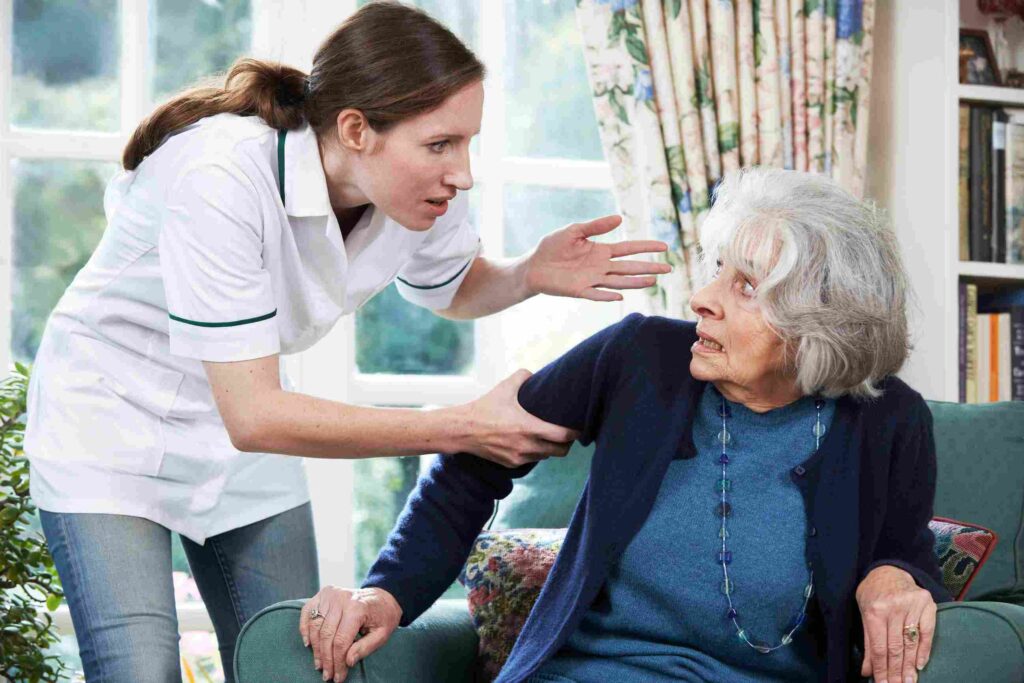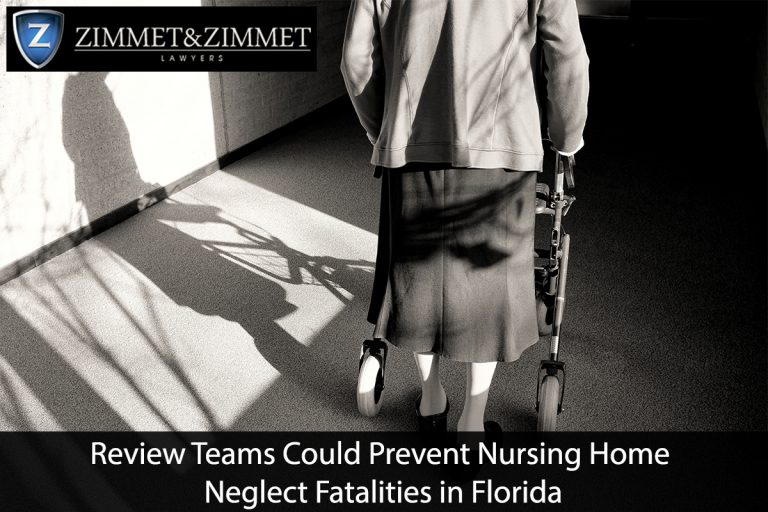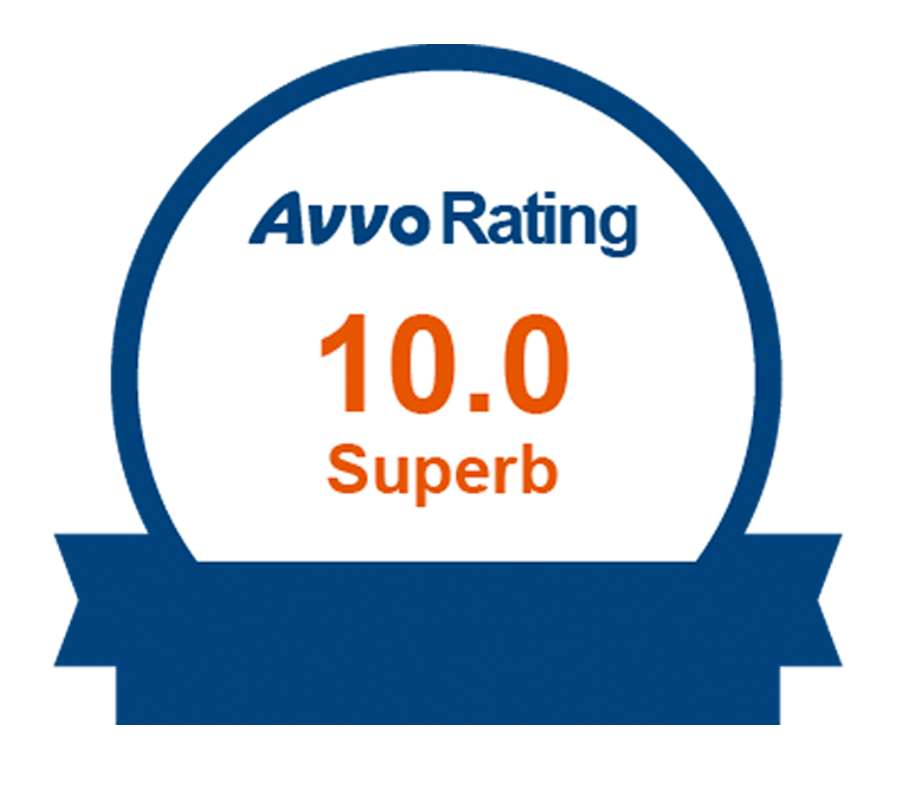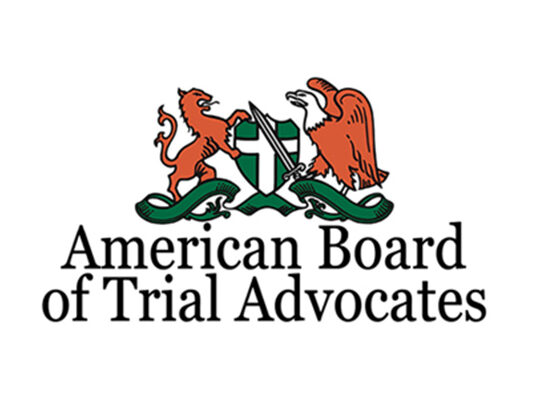When your parents, family members, or loved ones get older, you may have to decide to seek care from them at a nursing home. When you entrust the care of a loved one to the staff, you believe they will provide everything they need and more.
Unfortunately, this does not always happen.
Over 40% of nursing home residents in Florida have reported abuse, while over 90% have reported they (or someone else) were neglected.
This is an issue that continues to worsen. The state has created laws to protect some of the most vulnerable residents to counteract the abuse and neglect in Florida nursing homes. Knowing these laws will help you understand your rights and the rights of your loved one if abuse or neglect is suspected.
At Zimmet & Zimmet, we offer experienced legal representation for nursing home abuse victims. You can contact our office for a free consultation and learn more about the laws in place here.
What Constitutes Nursing Home Abuse in Florida?
Before diving into the legal protections, defining what constitutes nursing home abuse is essential. In Florida, this term is broadly categorized into:
Physical Abuse
Physical abuse in a nursing home involves any action that causes bodily harm to a resident. This can range from slapping, hitting, and pinching to more severe forms of violence, such as choking or using excessive force during restraints.
Physical abuse often leaves visible marks or injuries, making it somewhat easier to detect. If you notice any unexplained bruises, fractures, or other injuries on your loved one, it’s crucial to consult a nursing home abuse attorney for advice on how to proceed.
Emotional Abuse
Unlike physical abuse, emotional or psychological abuse can be harder to detect as it leaves no visible scars. Emotional abuse can include yelling, humiliation, ignoring the resident, or isolating them from social activities or family visits.
This abuse can be devastating and lead to depression, withdrawal, or even more severe mental health conditions. If your loved one starts showing changes in behavior or seems unusually anxious or scared, it may be a sign of emotional abuse.
Sexual Abuse
Sexual abuse in a nursing home is any non-consensual sexual contact with a resident. This can include unwanted touching, sexual assault, and rape. Given the vulnerable state of many nursing home residents, this form of abuse is particularly heinous. Signs can include unexplained genital infections, torn underwear, or the resident’s sudden emotional withdrawal.
Financial Exploitation
Financial exploitation involves the illegal or unauthorized use of a resident’s money or assets. This can range from stealing cash and valuables to more complex forms of fraud, such as coercing or deceiving the resident into signing financial documents.
Watch for sudden changes in financial conditions, missing valuables, or unexplained transactions. Financial exploitation is not only abusive but also a criminal act that should be reported and prosecuted.
Neglect
Neglect is failing to provide adequate care and services necessary to maintain the resident’s health and well-being. This can include not administering medication on time, failure to assist with hygiene, and not providing sufficient food or water.
Signs of neglect may manifest as bedsores, frequent illnesses due to poor hygiene, malnutrition, or dehydration. If you believe your loved one is experiencing neglect, immediate action is necessary.
Each form of abuse seriously violates the resident’s rights and can have severe and lasting impacts on their health and well-being. If you suspect any form of abuse, don’t hesitate to seek professional advice from a qualified Florida nursing home abuse lawyer near you.
The Florida Statutes on Nursing Home Abuse
Florida law offers comprehensive legal protection for nursing home residents. The laws are primarily encapsulated in Chapter 400 of the Florida Statutes, known as the “Nursing Home Resident’s Rights.” This chapter outlines the rights and protections afforded to residents and serves as a foundation for legal action against nursing homes.
Resident’s Bill of Rights
One of the highlights of Chapter 400 is the Resident’s Bill of Rights. This includes:
- The right to civil and religious liberties
- The right to private and uncensored communication
- The right to be treated courteously, fairly, and with dignity
- The right to a safe living environment free from abuse and neglect
Violating these rights can be grounds for legal action, and a nursing home abuse attorney can guide you through the specifics.
Regulatory Oversight
Florida’s Agency for Health Care Administration (AHCA) regulates nursing homes. AHCA conducts regular inspections, and any violations can lead to penalties, ranging from fines to the revocation of the nursing home’s license.
Reporting and Investigative Procedures
If you suspect abuse, report it to the Florida Department of Elder Affairs. This triggers an investigation, which is generally completed within 60 days. The findings can serve as evidence if you decide to take legal action. A Florida nursing home abuse lawyer near you can help you understanding the investigation findings. They can also work with you and build a strong case.
Legal Recourse: What You Can Do
In Florida, victims of nursing home abuse or their families can file a civil lawsuit. Damages that may be recovered include:
- Medical expenses
- Pain and suffering
- Punitive damages
The statute of limitations for filing a nursing home abuse case in Florida is two years from when the abuse was discovered or should have been discovered.
Role of a Nursing Home Abuse Attorney
Engaging an experienced attorney is crucial when dealing with suspected abuse. A legal professional will:
- Provide an initial consultation to assess the merits of your case
- Assist in the collection of evidence
- Offer advice on the best course of legal action
- Represent you in court if needed
Florida Takes Nursing Home Abuse Seriously
Florida law provides protection against nursing home abuse. From the Resident’s Bill of Rights to stringent regulatory oversight, the state has a framework to safeguard the vulnerable.
However, the legal process to seek justice when nursing home abuse occurs can be complex, so it’s invaluable to consult a nursing home abuse attorney to ensure that your loved ones are protected. If you suspect abuse, act immediately and seek legal advice from a qualified Florida nursing home abuse lawyer near you. Your loved ones deserve nothing less than to live with dignity, care, and respect.
For more information or if you suspect a loved one is a victim of abuse, don’t hesitate to consult our expeirenced nursing home abuse attorney at Zimmet & Zimmet. We can help you seek justice and compensation.











